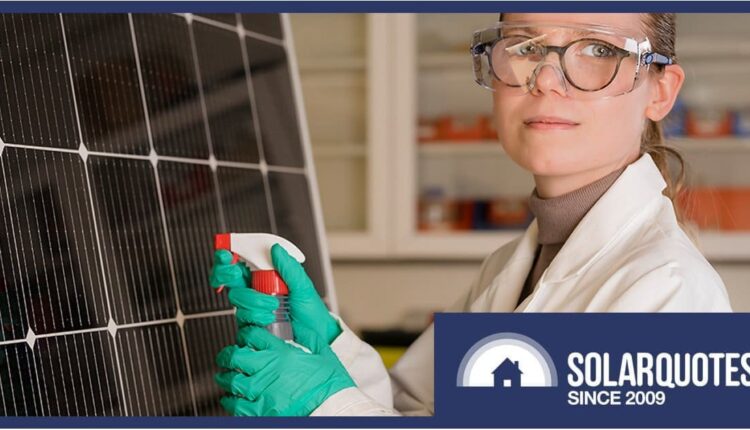Study on cleaning solar panels: Avoid using dishwashing detergent
The results of a Finnish study suggest that the glass of solar panels can be safely cleaned without affecting performance using some common cleaning products – but not dishwashing detergent.
The accumulation of dirt and debris on solar panels can impact electricity production. While rain is usually enough to keep solar panels fairly clean as long as they are not laid flat or nearly flat; Long periods without rain can result in significant dust accumulation.
In addition to dust; Leaves, lichens, pollen and droppings from various creatures such as birds and flying foxes can also be a problem. and the rainfall may not be enough to clean them. Even “hard” shadows, such as those caused by bird droppings or lichens, can lead to hot spots when standing for long periods of time.
There has been a lot of debate (including here on SQ) about the best way to clean solar panels (or even whether they should be), as they have anti-reflective (AR) coatings that can be damaged. The Solar Energy Materials and Systems (SEMS) research group at the University of Turku in Finland has now commented on the topic.
The researchers conducted some tests using glass samples from unused modules. The first was carried out on uncontaminated glass and the second involved contamination of the samples by algae growing on them. The cleaning fluids they tested included ethanol, acetone, isopropanol, special solar panel cleaners, some commercially available glass cleaners, and various brands of dishwashing liquid.
Their study found that the anti-reflective coating on the glass of solar panels did not deteriorate as a result of chemical cleaning. While dishwashing detergent did not appear to damage the glass, after rinsing with distilled water, transmittance did not return to precleaning levels in both the uncontaminated and contaminated samples. It is possible that the detergent contaminated the glass and the rinsing process was not enough to wash away the detergent residue.
“Although the glass appears clean when cleaned with detergent, its ability to transmit light is significantly impaired. Therefore, a clean-looking end result is not a guarantee of optimal performance,” said research assistant Julianna Varjopuro.
As far as a more intensive rinsing process is concerned, Kati Miettunen, professor of materials engineering, warned against mechanical cleaning or high-pressure cleaners; although these methods were not tested in the study.
It’s worth noting that the glass pieces were immersed in cleaning solutions for 20 hours – not real world conditions.
You can find the full study report here.
Safety comes first when cleaning solar modules
There hasn’t been much rain in our neck of the woods lately, so our panels are starting to look pretty dusty. but still free of bird droppings. I have no intention of putting them through a wash at this point and have never done so in the 2.5 years we have had this system. This is one of the advantages of an oversized system (10 kW, with 8 kW inverter) as the additional module capacity is helpful in such situations.
Roofs are unsafe places at the best of times and according to WorkSafe Australia, working at heights is a leading cause of workplace deaths and serious injuries in this country. Add water and electricity to the mix and it can be a really risky proposition. Add me to that mix and it’s probably a disaster waiting to happen. It’s not just personal injury or damage to the facility that concerns me, but also possible damage to the roof from accidentally breaking tiles; With an array I would have to be on the roof to clean it.
So I just wait for the rain. If the panels are too dirty and there is still no rain in sight, I call in professional cleaners.
If you are a die-hard DIYer and want to tackle cleaning your solar panels yourself, make sure you have the proper safety equipment, such as: B. a seat belt, and use it properly. It’s also a good idea to check the warranty documents for your solar panel to see what it mentions about cleaning, as certain types of cleaning products and methods may be excluded.



Comments are closed.